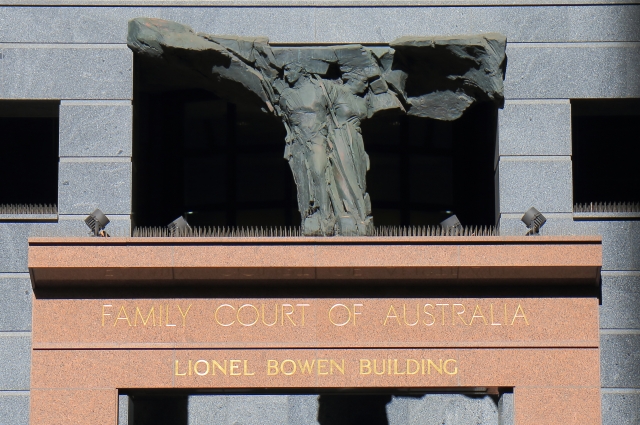オーストラリアのミッチェル弁護士から、弁護士ならではの法的視点から見たお便りが届きました。事故の被害者の金銭(被害者に支払われた損害賠償金)を適切に管理するためのルールについて解説してくれています。
↓↓ The original English version is bellow 🙂
損害賠償金の適切な管理
自分のお金を他人に預けるには信頼関係が必要です。少額のお金を家族に渡すことさえ、互いの強い理解が必要でしょう。
ましてや、多額のお金をファイナンシャル・マネジャー(資産管理会社)に預ける場合、預け先が責任を持って行動してくれるという信頼がなければなりません。
法律上、信託とは、第三者が「受益者」と呼ばれる他人のために金銭を保有・管理する法的な取り決めのことです。
受託者は、受益者の最善の利益のために行動するという非常に重大な法的義務を負います。

損害賠償金の信託による管理
信託は、財産設計、納税の最適化、家族の利益のための資産管理など、様々な目的で利用されています。
信託が関係するニッチな分野としては、怪我をした人が保険会社から賠償金を受け取る際、その賠償金が「アドミニストレーター」と呼ばれる第三者組織(資産管理会社)に預けられるケースがあります。
もしあなたが不運にも事故で負傷した後、保険会社から受け取った賠償金(または家族のための賠償金)を管理する資産管理会社に対する信頼を失った場合、どうなるのでしょうか?
多くの場合、信頼回復が可能かどうかを確認するか(コミュニケーションが取れなくなった後、テクニカルな点を明確にすることで)、もしくは、別の管理会社への移行を検討することになります。
賠償金が被害者に支払われるプロセス
まず最初に「資産管理会社」について説明しましょう。
オーストラリアの賠償請求案件では、ほとんどの場合、怪我をした人は、保険会社に対する賠償請求が解決した時点で、直接賠償金を受け取ることができます。
オーストラリアでは、金銭の受け渡しが正式に記録されるよう、保険会社は負傷者の代理人である弁護士を通して賠償金を支払うのが一般的です。このとき、弁護士は管財人の立場に置かれ、賠償金の受取人であるクライアントの指示に従わなければなりません(通常、クライアント指定の銀行口座にお金を送金する)。これは、負傷により働けなくなってしまったケースなど、負傷者にまとまった額の賠償金が支払われる場合も同様です。
資産管理会社による管理の必要性が高いケース
しかし、負傷者が18歳未満の場合など、賠償金の取り扱いを負傷者自身とは別の組織に委ねることが適切な状況もあります。負傷者の利益のため、賠償金は通常、負傷者が成人に達するまで、通常は18歳になるまで(場合によっては21歳までなど、より遅い年齢まで)、資産管理会社によって管理されます。
また、傷害の程度が重く、事故当時は成人であったにもかかわらず、自分の身の回りのことができず、家計を管理する能力も失ってしまうという悲劇的な状況もあります。このような状況では、第三者機関が長期にわたって資金を保護することが、負傷者の利益となります。
では、そうした場合、管理会社で生じる管理手数料は誰が負担するのでしょうか。
傷害を負った人の生涯にわたって重要な役割を果たす管理会社の費用は、時として30万豪ドルを超えることもあります。通常、こうした費用は、賠償金を支払った保険会社が負担します(そのため、負傷者が負担することはありません)。

資産管理会社の役割
アドミニストレーター(管理者)の役割を提供する組織は、大きな責任を引き受けることになります。これらの組織は、傷害を負った人の金銭管理の進捗状況を説明する定期的な財務報告書を提出する義務など、監視の対象となります。
オーストラリアにはこの専門的サービスを提供する民間企業がいくつかあります。また、政府の一部門である管財人事務所(Office of the Public Trustee)もこのようなサービスを提供しています。
資金管理を行う上で最も考慮すべきことは、負傷者の福祉と利益です。
具体的には、各々の現在の経済状況(資金の必要性)と、将来見込まれる費用の補償の両方を考慮することです。
このように、賠償金基金(法律上、傷害者に帰属する金銭)の一部を、傷害者の当面の経済的支援(例えば、手術費用や傷害者宅への外部看護師の定期的な付き添い費用など)に充当することと、将来のこと(20~30年以上に及ぶこともある傷害者の予想される生涯にわたって、賠償金基金の大部分を慎重に貯蓄すること)を天秤にかけることには、しばしば一種の「緊張関係」が存在します。

ニューサウスウェールズ州高等裁における最新判例
NSW州高等裁判所において、2025年4月4日、既存の資産管理会社による対応の見直しに関わる裁判に判決が下されました。(Re KT and JC, Protected Persons [2025] NSWSC 306)
この判例において、リンゼイ判事は、管財人(資産管理会社)の変更を行うことが適切であるかどうかの判断を求められました。該当のケースでは、負傷者の家族が、既存の資産管理会社に対して、家族に支払われた賠償金の管理責任者としての信頼を失っていました。
本ケースで裁判官は、既存の管理会社が適切に機能していないことを証明した後、別の会社を管理者に任命することが相応しいと判断しました。
判事は特に、既存の会社がクライアントの利益よりも、会社の組織的事情を優先したことに言及しました。同判事は、既存の管理会社の意思決定プロセスは、顧客の利益が第一であることを含む資金管理の法的原則に沿っているようには見えないと考えました。
最後にひとこと
信頼は銀行口座のようなものです。
預けなかったものは引き出せないのですから。
▶️オーストラリア留学、オーストラリア滞在の皆様、サポートするエージェントの皆様、オーストラリアでの法的サポートは万全ですか?ご不明な点があれば、お気軽に i@jinken.com まで。
▶️オーストラリア滞在中の法的な緊急対応:
(日本語OK)MBA法律事務所 パートナー弁護士ミッチェル・クラーク 専用お問い合わせフォーム
▶️MBA法律事務所パートナー ミッチェル・クラーク弁護士のご紹介はこちらから
Rules for good management of injured person’s money
It takes trust to place your money with someone else. Even allowing a small sum of money to be given to a family member involves a strong understanding between the 2 people. Then, giving a large amount of money to someone else, such as allowing your money to be placed with a Financial Manager will only be possible when you can feel comfortable that the other person or company will act responsibly.
Under law, the concept of a trust is the legal arrangement where a third party, referred to as the Trustee, holds and manages money for the benefit of another person, known in legal speak as the “beneficiary”. The Trustee has the very serious legal obligation to act in the best interests of the beneficiary.
Trusts are used for various purposes, including in estate planning, tax optimisation and for managing assets for the benefit of family members.
One niche area involving trust is in the situation where an injured person receives compensation payout from an insurance company with that compensation money being placed with a separate organisation called the “Administrator”.
What happens if I lose confidence in the Administrator company responsible for managing my compensation money (or money for a family member) after tragic accident?
The answer often involves a combination of checking if the confidence can be re-built (maybe through clarification of technical points following communication break down) or arranging for the appointment of a new Administration company.
Background
What do you mean by “Administration company”?
Firstly, for explanation, for the majority of compensation cases in Australia, the injured person will receive the compensation moneys directly. Meaning, that the person for whom the money is supporting will receive the funds on the conclusion of the case with the insurance company. It is standard in Australia that the insurance company will pay the compensation money to the lawyer representing the injured person. This approach is designed to recognise the official recording of the payment of the money. The lawyer is then placed in the position of a trustee, since the money received by the lawyer is on behalf of the client (so that the money always belongs to the injured person, not to the lawyer). And, the lawyer must then act on the instructions of the individual client, typically following the direction of the client to pay the money into the client’s nominated bank account. This is the outcome even if the payment is a sizable sum of money, such as in cases involving a client who encounters interference to employability due to injuries sustained in an accident.
There are certain situations however where it is appropriate that the handling of the compensation money be given to an organisation separate to the injured person. This special arrangement is made for the benefit of the injured person such as in situations where the injured person is under 18 years of age. In that situation the money is typically left to be professionally managed by a private corporation (with expertise in financial management) until the then infant injured person reaches maturity, typically on turning 18 years of age (although in some cases it can be to a later age such as to age 21).
Then, there are the tragic situations in which the injury is so severe that the injured person, although an adult at the time of the accident, is left with inability to look after themselves and including loses the ability to effectively budget and manage their own finances. In such situations it is then for the benefit of the injured person that a third party organisation be involved to safeguard the money for the longer term.
Doesn’t such arrangement involve extra cost such as the fees of the Administrator company?
Yes, such arrangement has associated extra expense and can be large extra expense of over AUD$300,000.00 because the fees of the Administrator company cover the work to perform the important role over the lifetime of the injured person. Typically, this extra expense will be paid by the insurance company (so the injured person is not out of pocket).
Are there protective measures?
Yes, the organisations that offer to perform the role of the Administrator are accepting a huge responsibility. Those organisations are subject to scrutiny and including with obligation to provide periodic financial reports explaining the progress of the management of the injured person’s money.
Do I have options for the selection of the company to perform the Administrator role?
Yes, there are several private corporations in Australia who provide this specialised service. There is also the option of engaging the Office of the Public Trustee, which is a department of the Government, which also offers to provide such service for a fee.
Guiding Principals
The paramount consideration in the conducting of the management of the funds is the welfare and interests of the injured person. And, it’s a consideration both for the individual client’s present financial requirements as well as coverage of the costs for future prospective expenses. In this way, there is often a type of “tension” between applying a portion of the compensation fund (which under law is money belonging to the injured person) for immediate support of the injured person (such as to cover costs for operation or engagement of regular attendance of a external nurse to the injured person’s home) weighed against the future (so prudently saving a large portion of the compensation fund over the expected lifetime of injured person, which can often involve a span of 20 – 30 years or more).
Recent Decision in the Supreme Court in New South Wales on this specialised topic
In the Supreme Court of New South Wales, Justice Lindsay delivered a Judgment on 04 April, 2025 in a case involving review of the activities of the existing Administrator. (Re KT and JC, Protected Persons [2025] NSWSC 306).
In this recent case, the Judge was asked to decide whether it was suitable for making of a change of the Administrator. In that case, the family of the injured person had lost confidence in the existing Administrator’s continuance as the company responsible for the management of the compensation money.
In that case the Judge adjudicated that it was appropriate for a new company to be appointed as the Administrator, following demonstration of the breakdown by the existing company. The Judge specifically referred to the existing company having privileged its organizational imperatives over the interests of its client. He considered that the decision-making process by the existing company does not appear to have been expressly informed by reference to the legal principles of fund management and including the way those principles place the primary focus on the individual client.
Final word of wisdom
Trust is like a bank account; you can’t withdraw what you didn’t deposit.
▶️オーストラリア留学、オーストラリア滞在の皆様、サポートするエージェントの皆様、オーストラリアでの法的サポートは万全ですか?ご不明な点があれば、お気軽に i@jinken.com まで。
▶️オーストラリア滞在中の法的な緊急対応:
(日本語OK)MBA法律事務所 パートナー弁護士ミッチェル・クラーク 専用お問い合わせフォーム
▶️MBA法律事務所パートナー ミッチェル・クラーク弁護士のご紹介はこちらから

